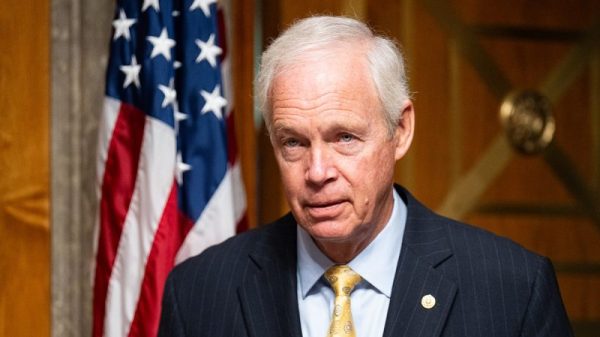The House of Representatives passed President Donald Trump’s $9.4 billion plan to claw back federal funds for foreign aid, PBS and NPR.
The 214 to 212 vote was mostly along party lines, with no Democrats voting for the bill. Four Republicans voted against the measure, however – Reps. Brian Fitzpatrick, R-Pa., Mike Turner, R-Ohio, Mark Amodei, R-Nev., and Nicole Malliotakis, R-N.Y.
A dramatic scene played out on the House floor on Thursday afternoon as the bill appeared poised to fail, with six Republican lawmakers having voted ‘no.’
Fox News Digital observed Speaker Mike Johnson, R-La., and Majority Whip Tom Emmer, R-Minn., huddled with several moderate Republicans who either voted ‘no’ or had not yet voted.
In the end, two of those holdouts – Reps. Nick LaLota, R-N.Y., and Don Bacon, R-Neb. – elected to support the bill, enabling it to pass on a narrow margin.
Trump allies largely viewed the package as a test run to see whether congressional Republicans could stomach cuts that were widely seen across the GOP as low-hanging fruit.
Spending cuts in the legislation include a $8.3 billion rollback of funding to the U.S. Agency for International Development (USAID), and just over $1 billion in cuts to the Corporation for Public Broadcasting, which funnels federal dollars to NPR and PBS.
Republican leaders argued the majority of the USAID dollars getting cut were going toward ‘woke’ programs like $1 million for voter ID in Haiti and $3 million for Iraqi Sesame Street.
On NPR and PBS, conservatives have long accused the two networks of taking federal money while growing increasingly liberal in their bias, rather than focusing on impartiality.
But some moderate Republicans had concerns about the legislation’s effect on critical disease prevention research in Africa.
Others argue that entirely slashing federal funding to public broadcasting would disproportionately hurt small local news outlets that rely on it most, and which are situated in areas that otherwise would be an information desert without those resources.
The legislation ultimately passed, however, and will now be sent to the Senate for consideration.
The $9.4 billion proposal is called a rescissions package, a mechanism for the White House to block congressionally approved funding it disagrees with.
Once transmitted to Capitol Hill, lawmakers have 45 days to approve the rescissions proposal, otherwise it is considered rejected.
Such measures only need a simple majority in the House and Senate to pass. But that’s no easy feat with Republicans’ thin majorities in both chambers.
If passed, Republican leaders hope the bill will be the first of several rescissions packages codifying spending cuts identified by Elon Musk’s Department of Government Efficiency (DOGE).







































